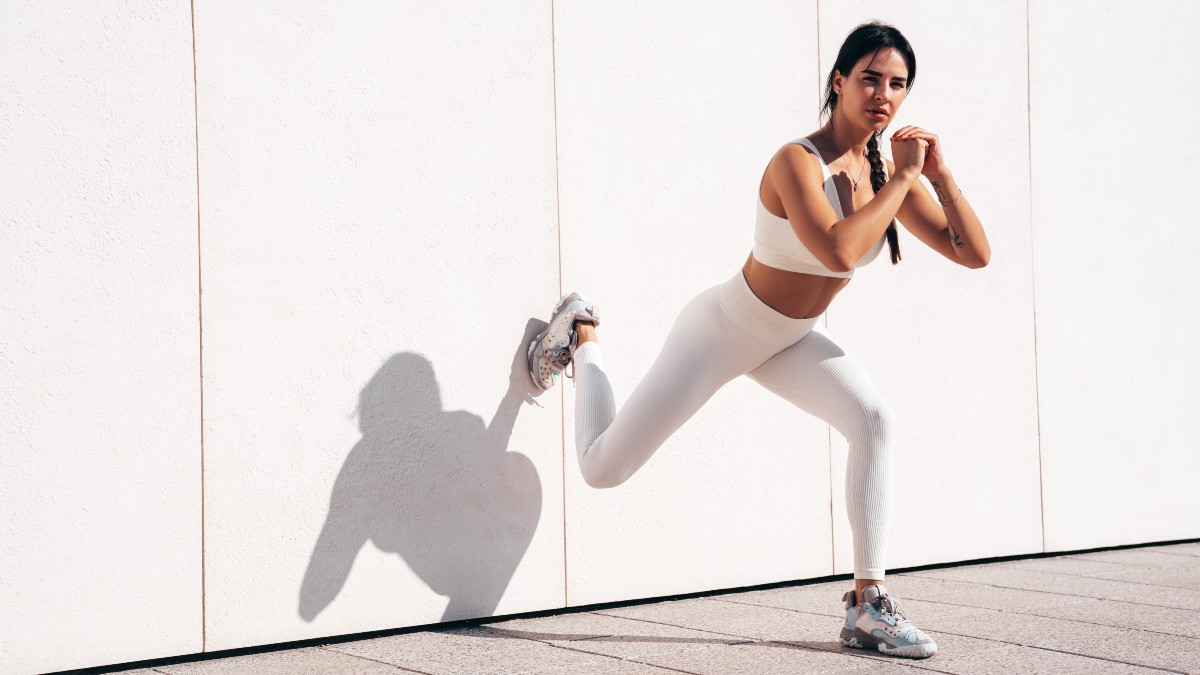
The heat can make us really sick, so be careful
Vicky Venio
Everything is better summer: Weather, mood, activities, everything. Long, warm days give us the opportunity to spend more time outdoors and reap all the valuable benefits that contact with nature has to offer. nature. The same applies to our workouts: we can do them outdoors, without having to wear a lot of heavy clothes or worry about slipping in the rain or snow. Everything seems simpler. But is it so?
In a sense, yes. Sunny days with altitude TemperatureHowever, it carries its own risks. Excessive heat can greatly stress the body, leading to serious consequences if we are not careful. Her emergency doctor Cleveland ClinicTom Waters analyzes the potential problems that can arise, the symptoms to suspect, while also giving advice to protect ourselves from the risk of heatstroke.
As the expert explains, when we exercise, our body temperature rises. Then the body produces He sweatsTo return the body temperature to normal levels. However, under conditions of extreme heat and humidity, the body’s efforts to cool itself through sweat are ineffective. “Sweating is the main mechanism for dissipating heat. However, when it is hot and humid, this mechanism is not effective enough to get rid of it.” heat»This happens when your body temperature rises and you need to take immediate measures to reduce it, explains Dr. Waters.
According to the expert, the first steps you should take are to stay away from the sun and drink plenty of fluids. This will automatically make you feel better. However, if you are experiencing more serious symptoms, these simple measures may not be enough and more drastic steps may be needed. It was noted that Young children and the elderly are more sensitive to high temperatureSo they should be less exposed to it heat And drink plenty of fluids.
Related articles
There are signs that tell you when it’s time to stop. The most important ones are:
1. Convulsions: It’s the first sign that you’ve been overheated and need to cool down. So if you experience muscle cramps during exercise:
- Stop and go somewhere cooler
- Gently stretch and massage the affected muscles.
- Drink water or an electrolyte drink
- Avoid drinks that contain caffeine or alcohol.
- Do not exercise again for the rest of the day and make sure to drink plenty of water.
If the cramps do not go away after an hour or you have heart problems, seek medical help.
2. Heat exhaustion: Heat exhaustion is more dangerous than cramps. You may have symptoms such as:
- Extreme fatigue
- shortness of breath
- Dizziness
- vomiting
- fainting
- The skin is cold and clammy or hot and dry
- Low blood pressure
- Weak but rapid pulse
- Feeling cold or shivering, despite the high temperature.
In this case, you should stay away from the heat and the sun as soon as possible. If possible, stay in an air-conditioned space. Loosen your clothes and drink water or electrolyte beverages. If you have access to a cool bath or wet towels, use them to lower your skin temperature. If you are vomiting or your symptoms do not improve within a few minutes, see a specialist.
3. Heatstroke: Heat stroke is the most serious form of heat-related discomfort. This life-threatening condition requires immediate medical attention because if left untreated, it can lead to brain damage or death.
Symptoms may include:
- Fever
- The skin is hot, red or dry
- Feeling confused or disoriented
- Dizziness
- Rapid pulse and breathing
- fainting.
A person who has suffered a heatstroke needs immediate medical attention. He should stay in a cool place and use cold compresses to lower his body temperature.
You don’t have to avoid exercising outdoors when it’s hot, just know when to stop.
What you can do to avoid any problems
- Fluids are essential. Make sure to drink water or electrolyte drinks every 15 minutes when exercising in the heat, even if you’re not thirsty. Aim for 2 to 4 cups of fluids every hour. Drink plenty of fluids before, during, and after your workout.
- Don’t put too much pressure on yourself. You don’t have to follow your exercise routine exactly when conditions are tough. Higher temperatures put more stress on the body, as it works harder to cool down. If you want to exercise outside, reduce the intensity of your exercise. You may also need to make it shorter than usual. A lower intensity, shorter workout is not a sign that you are out of shape. It’s a smart way to stay healthy.
- Try something different. Running for miles may not be the best idea when it’s hot outside. Alternatively, consider trying a bike ride or even a cold swim.
- Exercise early in the morning or late at night. Midday is not a good time to exercise in the warmer months. Get out before 9am. Or after 7pm to avoid the scorching sun and excessive heat. If the temperature is too high, it is best to do your training indoors.
Read also:
Heart: How dangerous summer evenings were in the 1960s
Heat: Deal with the 40s Right
Why do mental illnesses worsen in the summer?

“Hipster-friendly coffee fanatic. Subtly charming bacon advocate. Friend of animals everywhere.”





More Stories
F-16 crashes in Ukraine – pilot dies due to his own error
Namibia plans to kill more than 700 wild animals to feed starving population
Endurance test for EU-Turkey relations and Ankara with Greece and Cyprus